Celebrating Global Handwashing Day
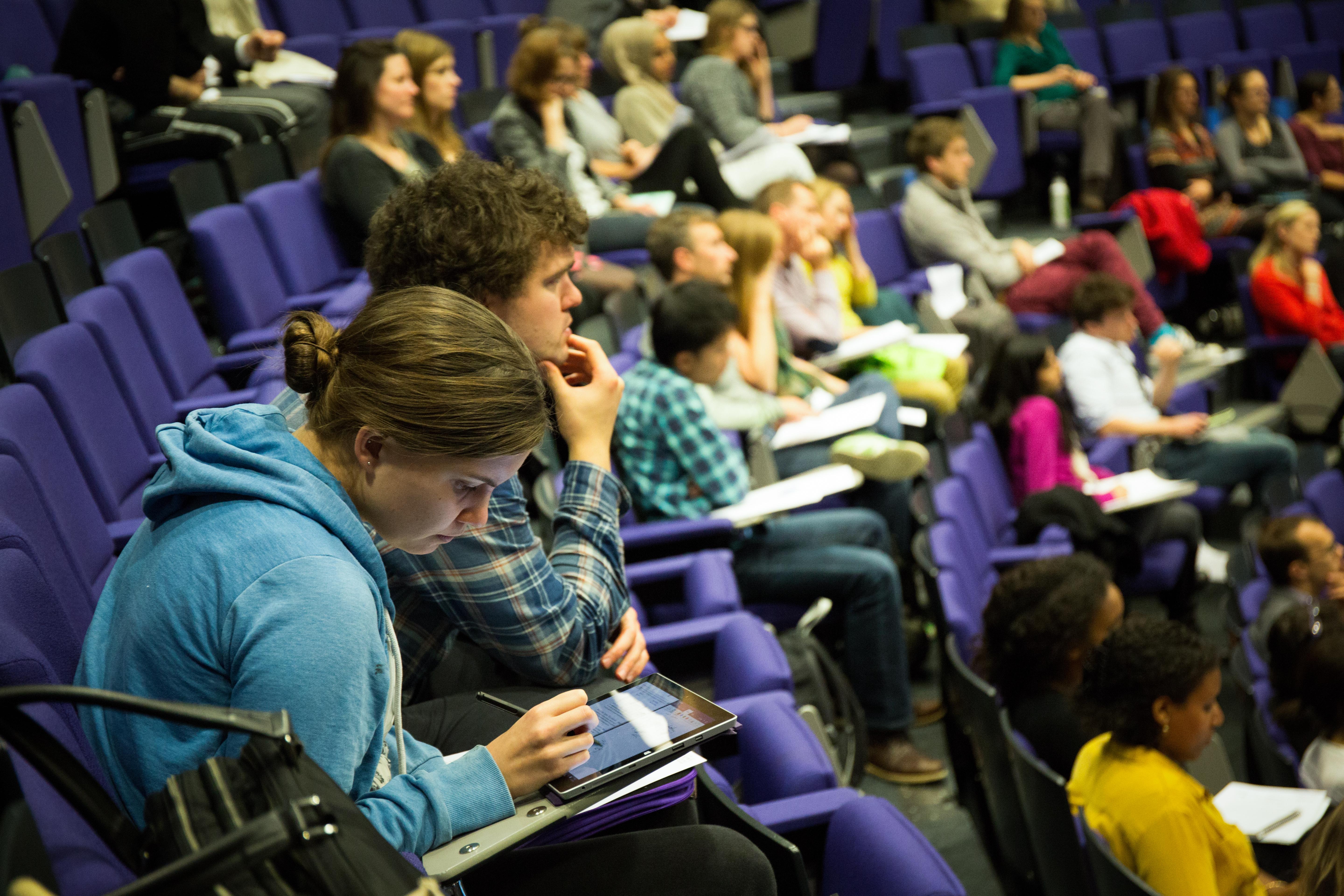
WaterAid/Sam James
On the October 14, the eve of Global Handwashing Day (October 15th), academics, students and practitioners came together to celebrate one of the world’s most cost effective public health interventions – handwashing.
The event, which was held in the John Snow Lecture Theatre at LSHTM was attended by about 80 people from academia, the NGO sector and government. It aimed to bring together global experts in handwashing to present the latest body of evidence around handwashing, behaviour change programs and effective monitoring. Importantly the event also sought to highlight research gaps and opportunities in an age of new emerging public health concerns (such as antibiotic resistance and emerging zoonotic diseases). The event was organised through a collaboration between WaterAid, LSHTM and the SHARE Consortium.
You can watch a live recording of the entire event here or read a description of what happened during the event below.
A reminder that handwashing is as critical now as it as ever been!
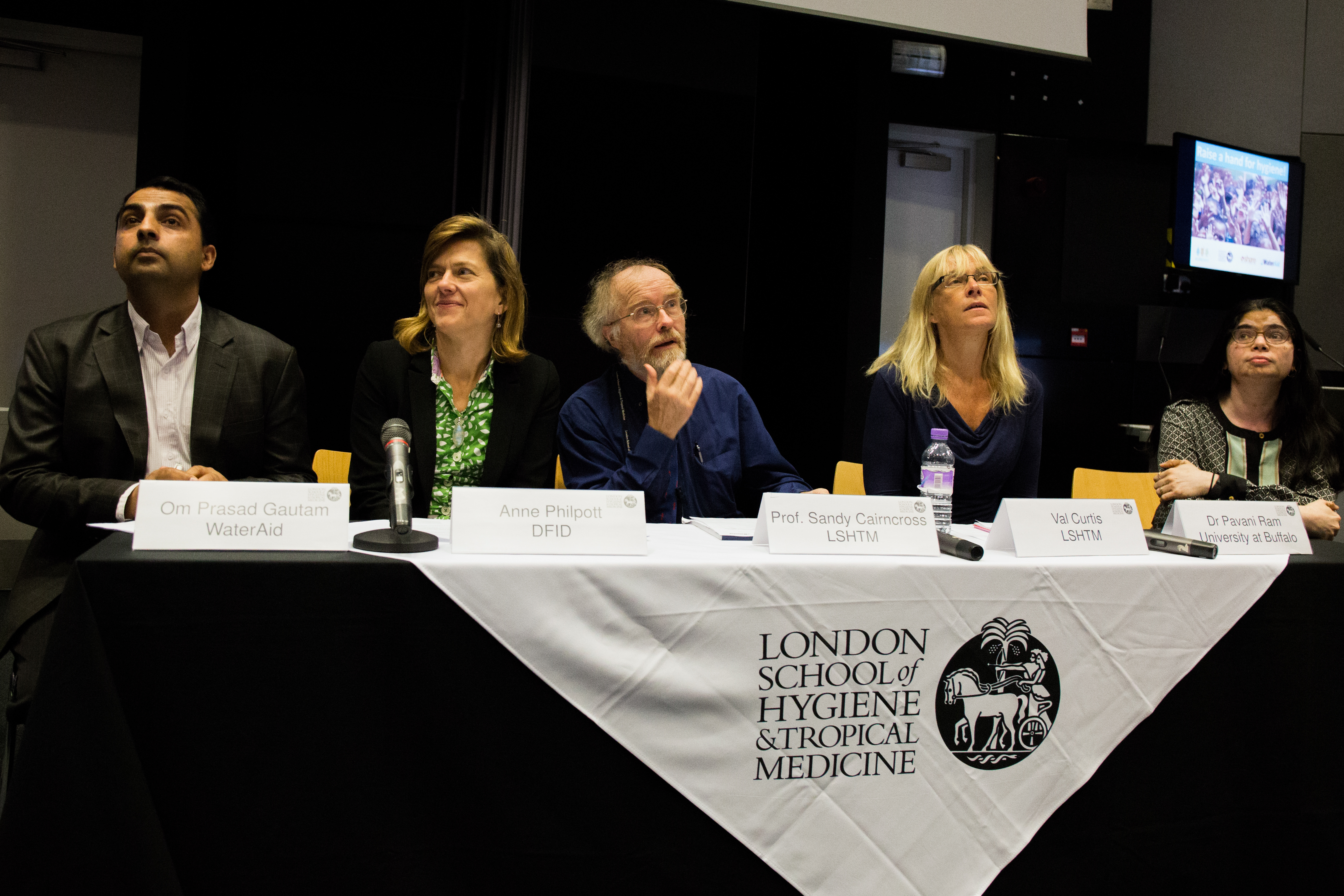
Photo: WaterAid/Sam James
Professor Sandy Cairncross chaired the evening, introducing a host of high profile guests:
Anne Philpott, DFID – Anne gave the keynote speech which drew on her personal experiences of working on handwashing projects in India. She highlighted many of the big questions she saw for the sector, particularly in the wake of recent evidence around WASH and handwashing in health facilities and the lessons she learned while working in Ebola effected regions of West Africa.
Yael Velleman, WaterAid UK – Yael gave the introductory address, speaking on behalf of Wateraid and discussing the challenges facing program implementer. She introduced the key areas that the other speakers would address. These included:
- Effective but innovative and creative hand washing campaigns that can be delivered sustainably, at scale
- Monitoring hand washing behavioural outcomes
- Operational learning and programmatic implementation of handwashing with soap
Dr Val Curtis, LSHTM – Val was the first of the three experts to speak. Val provided an update on some of the evidence around handwashing. She then gave an update on some of work that the Hygiene Centre at LSHTM had been doing. This included innovative methods of behaviour change, that moved away from traditional health messaging. Val’s slides are available for download here.
Dr Pavani Ram, Buffalo University – Pavani spoke about her team’s research into handwashing inequities around the globe. She the went on to explaining some of the challenges of measuring handwashing practice, highlighting the strengths and limitations of each method. She made the recommendation that for large scale work our primary indicator should be the percentage of the population who have a place for handwashing with water and soap. Pavani’s slides are available for download here.
Dr Om Prasad Gautam, WaterAid UK – Om presented on WaterAid’s new hygiene strategy, explaining how they are trying to ensure that hygiene is incorporated systematically into all of their programs. He gave innovative examples of their work in a range of countries as well as examples from his PhD on food hygiene. Om’s slides are available for download here.

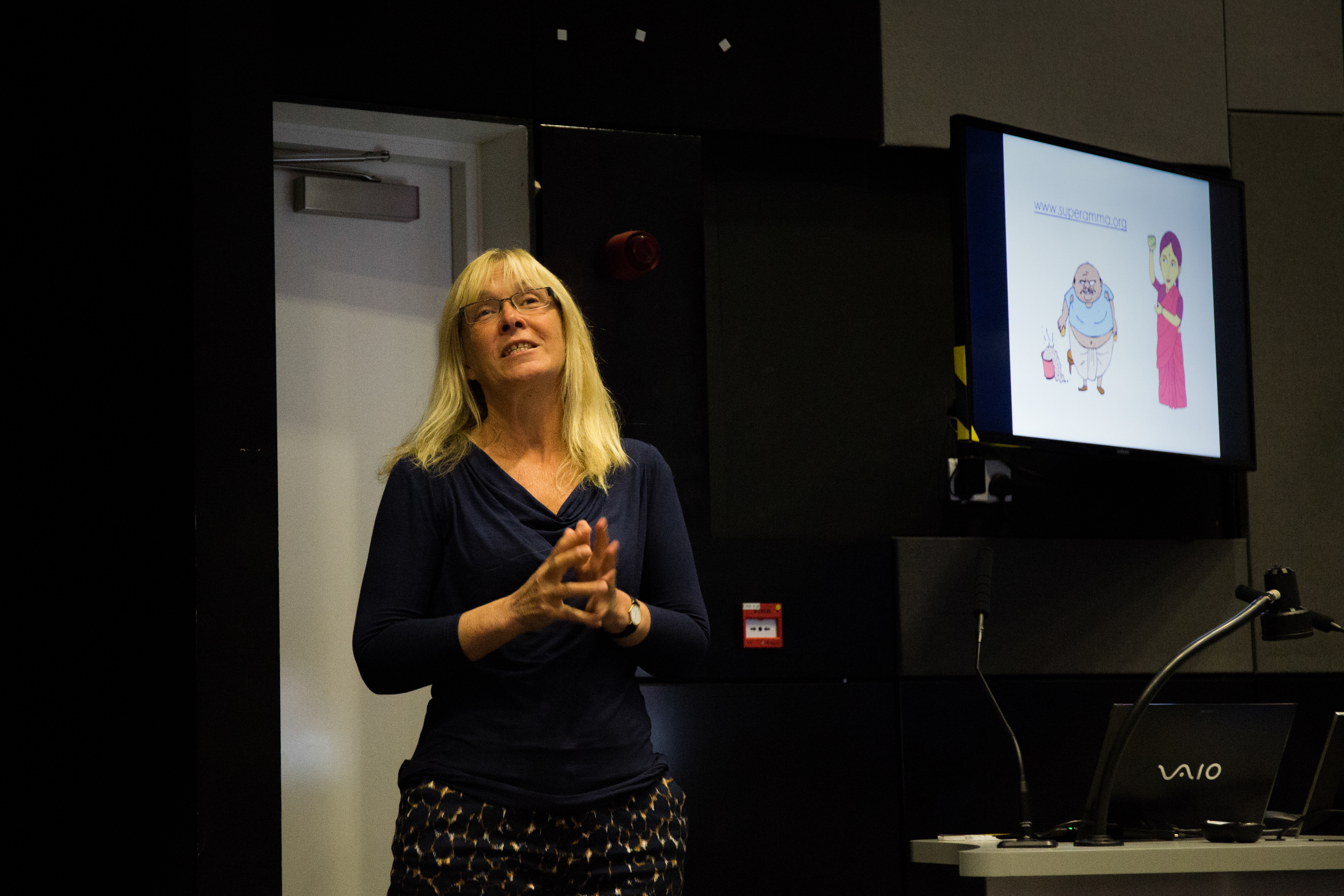
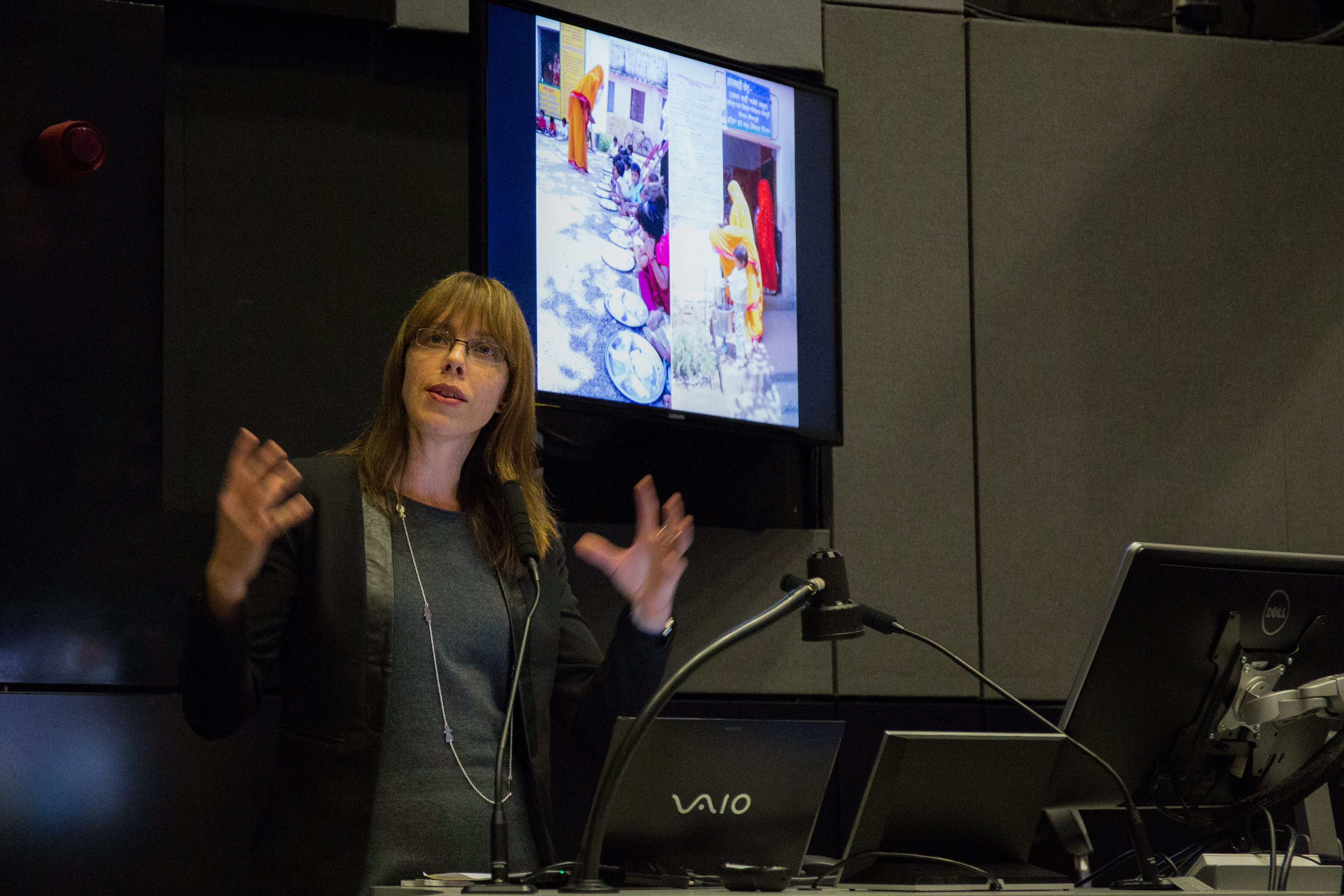
Photos: WaterAid/Sam James
Following the presentations there was a panel discussion with interesting questions from the audience. These included questions about the lessons from ebola, how to spark renewed interest in handwashing, differences in handwashing between urban and rural environments and handwashing in medical facilities.
Advocacy moment
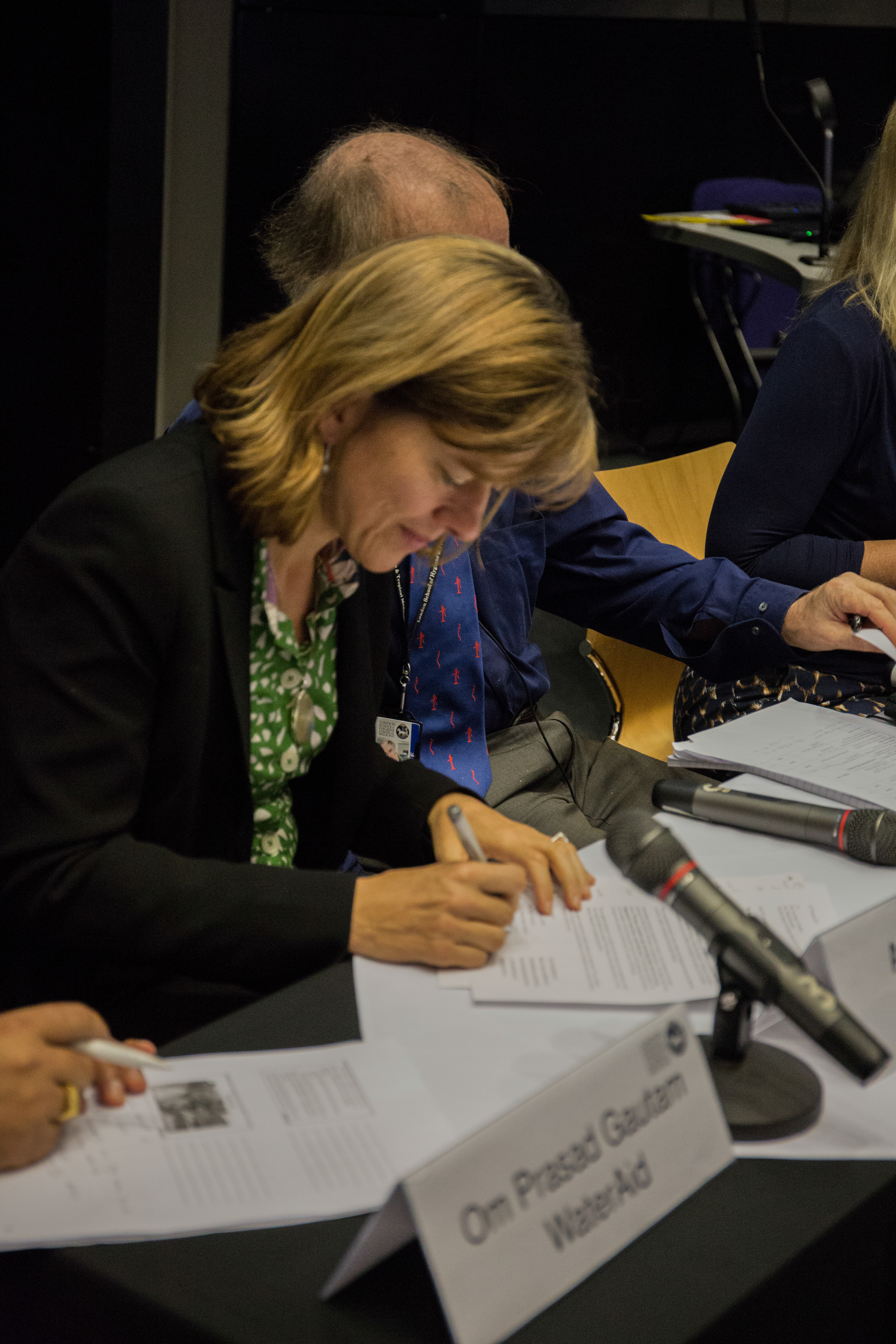 The event concluded with the signing of a Letter to Inter agency expert group on Sustainable Development Goals by all of the handwashing experts present and other who attended the event. This letter, which can be read in full via the link above, requests the to include an indicator in the SDGs on handwashing.
The event concluded with the signing of a Letter to Inter agency expert group on Sustainable Development Goals by all of the handwashing experts present and other who attended the event. This letter, which can be read in full via the link above, requests the to include an indicator in the SDGs on handwashing.
Global Handwashing Day is a global advocacy day dedicated to increasing awareness and understanding about the importance of handwashing with soap as an effective and affordable way to prevent diseases. The Global Public-Private Partnership for Handwashing initiated the first Global Handwashing Day on October 15, 2008. Since then, it has been endorsed and commemorated by a wide array of governments, international institutions, civil society organisations, non-governmental organisations (NGOs), private companies, and individuals around the globe.
